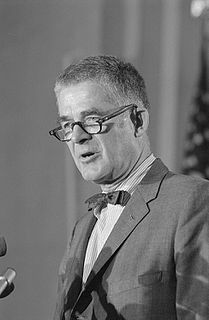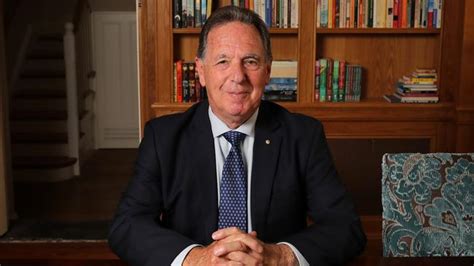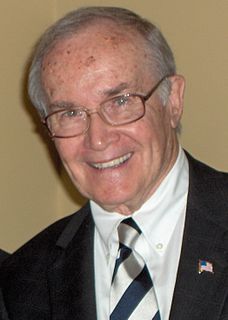A Quote by Cardinal Richelieu
Harshness towards individuals who flout the laws and commands of the state is for the public good; no greater crime against the public interest is possible than to show leniency to those who violate it.
Related Quotes
A free society depends upon a high degree of mutual trust. The public will not give that trust to officials who are not seen to be impartially dedicated to the general public interest, nor will they give trust to those high in government who violate the rule of law they ask citizens to obey at the expense of self-interest, or to those who present government as the place where one feathers his own nest, [or] exchanges favors with friends and former associates.
Since there is no such entity as 'the public,' since the public is merely a number of individuals, the idea that 'the public interest' supersedes private interests and rights can have but one meaning: that the interests and rights of some individuals take precedence over the interests and rights of others.
The laws that forbid the carrying of arms...disarm only those who are
neither inclined nor determined to commit crimes. Can it be supposed that
those who have the courage to violate the most sacred laws of humanity...will
respect the less important and arbitrary ones... Such laws make things worse
for the assaulted and better for the assailants, they serve rather to
encourage than to prevent homicides, for an unarmed man may be attacked with
greater confidence than an armed man.
Those laws, being forged for universal application, are in perpetual conflict with personal interest, just as personal interest is always in contradiction with the general interest. Good for society, our laws are very bad for the individuals whereof it is composed; for, if they one time protect the individual, they hinder, trouble, fetter him for three quarters of his life.
You have to almost apologize for saying, please enforce the laws. The laws, that they're [government] receiving good federal dollars to be able to ensure for public safety, which is incumbent upon them to secure on the streets in every city and state across this country. And instead government allows individuals who are a risk, who are a threat, to come back in the country, routinely, regularly without any kind of checks and balances.
[I believe in] the throne...parliamentary institutions...private enterprise and individual opinion against the socialization of the state...equity in the distribution of public burdens and strict maintenance of public faith with the creditors of the state [and] a fresh guarantee of peace by an alliance with France and...Belgium for the defence of our common interests against unprovoked attack.
Public virtue cannot exist in a nation without private, and public virtue is the only foundation of republics. There must be a positive passion for the public good, the public interest, honour, power and glory, established in the minds of the people, or there can be no republican government, nor any real liberty: and this public passion must be superiour to all private passions.
Many university presidents assume the language and behavior of CEOs and in doing so they are completely reneging on the public mission of the universities. The state is radically defunding public universities and university presidents, for the most part, rather than defending higher education as a public good, are trying to privatize their institutions in order to remove them from the political control of state governments. This is not a worthy or productive strategy.






































